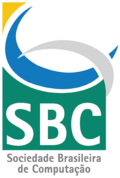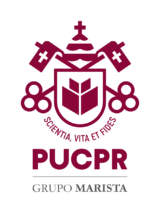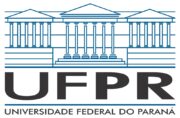SBSeg 2025: XXV Brazilian Symposium on Cybersecurity
Foz do Iguaçu – PR – September 1-4, 2025
IX Tools Session of SBSeg 2025
CALL FOR PAPERS
PRESENTATION
The Tools Session of the Brazilian Symposium on Cybersecurity (SBSeg) is a forum for developers and researchers interested in implementing and evaluating the performance of systems and tools that contribute to advancing knowledge in computer security, information, and computer systems.
Tools Session emphasizes demonstrating new systems and tools, the development experience, implementation issues, use, and the created perspectives.
The event companion proceedings will be published as open-access in SBC OpenLib (SOL) at https://sol.sbc.org.br/index.php/sbseg_estendido.
INSTRUCTIONS TO AUTHORS
Submissions must fall into one of the following categories:
Open Source – authors must make the tool’s source code and documentation available in a public repository, present the tool at the event, and provide a detailed technical video of the tool. The authors are candidates for awards (best work) from the Tools Session.
Closed Source – authors may not make the source code and documentation of the tool available in a public repository. Still, they must present the tool at the event and provide a detailed technical video of its configuration, operation, and results (or data). The authors of this modality are not candidates for Tools Session awards.
The modality must be explicitly indicated in the work, below the title for evaluation purposes. For submission, the tools must be presented in an article that contains the following information:
– Description and motivation of the problem solved by the tool;
– Solution architecture and description of main functionalities;
– Describe the demonstration planned for the tools session, including the necessary equipment.
– URL with a video explaining the installation and functionalities of the tool (mandatory in the Closed Source category and optional in the Open Source category).
Articles can be written in Portuguese or English; their formatting must follow the SBC model for publishing articles, available on the SBC portal (https://www.sbc.org.br/documentos-da-sbc/summary/169-templates-para-artigos-e-capitulos-of-books/878-templatesforpublishingarticles).
Articles have a limit to 10 pages, with 8 pages for the body of the article (including figures and tables) and up to 2 additional pages for references and appendices. Articles will be submitted exclusively in PDF format, through SBC’s JEMS system (https://jems3.sbc.org.br/sbseg2025-salaodeferramentas).
All accepted tools must be demonstrated at SBSeg by at least one of the authors registered at the event.
All papers will be evaluated by a board of reviewers following a double-blind review process (where the authors’ identities are concealed from both the reviewers and vice versa). This means that SUBMISSIONS MUST BE ANONYMOUS.
IMPORTANT DATES
- Registration of Articles: June 6th 2025
- Complete Submission: June 9th 2025 (hard deadline)
- Notification to authors: July 3rd 2025
- Final version by: July 10th 2025
TOPICS OF INTEREST
The same themes and topics are used for the SBSeg Main Track.
USE OF GENERATIVE ARTIFICIAL INTELLIGENCE
Check the new SBC CODE OF CONDUCT (https://sol.sbc.org.br/index.php/indice/conduta), especially regarding Generative Artificial Intelligence (AI).
ARTIFACT INSTRUCTIONS
In 2025, the Tool Session will evaluate the artifacts associated with each tool in an integrated manner with the activities of the Artifact Technical Committee (ATC). Thus, authors whose tools have been previously selected through the peer review process must, after notification, submit the corresponding artifacts for evaluation, in accordance with the submission guidelines defined by the ATC. The deadline for this submission will be the same as that set for the camera-ready version. The guidelines for artifact submission are available at: https://doc-artefatos.github.io/sbseg2025.
The artifact is an essential resource for research work, and its quality is as important as that of the scientific article.
The artifact evaluation process will be based on the evaluation process carried out by renowned conferences such as USENIX, CoNEXT, SIGCOMM, and EuroSys. We recommend that the authors with selected works read the descriptions of the seals available for artifacts and the description of what is expected of an artifact.
AWARDS
The best works will receive an award.
The selection of the best works will consider the work’s artifacts. A technical quality assessment committee of artifacts will evaluate all accepted works, including aspects such as availability, functionality, reproducibility, and sustainability.
Only those with a positive evaluation of at least two aspects of the artifact will compete for the best work awards.
TECHNICAL PROGRAM COMMITTEE
Alan Oliveira de Sá (ULisboa)
Álvaro Rincon (UFRJ)
André R. A. Grégio (UFPR)
Breno Santana Santos (UFS)
Bruno de Carvalho Albertin (EPUSP)i
Charles Christian Miers (UFSC)
Daniel Macêdo Batista (USP)
Dianne Scherly Varela de Medeiros (UFF)
Diego Kreutz (UNIPAMPA)
Diogo Menezes Ferrazani Mattos (UFF)
Eduardo Luzeiro Feitosa (UFAM)
Ewerton Andrade (UNIR)
Lucila Maria de Souza Bento (UERJ)
Marianne Batista Diniz da Silva (UFAL)
Robson Albuquerque (UnB)
Rodrigo Brandão Mansilha (UNIPAMPA)
COORDINATION
- Davidson Rodrigo Boccardo (Hospital Israelita Albert Einstein)
- Wilson S. Melo Jr. (Inmetro)
SBSeg 2025 General Coordination
- Altair Santin (PUCPR)
- André Grégio (UFPR)
- Eduardo K. Viegas (PUCPR)
CESeg Coordination
- Marcos Antonio Simplicio Junior (USP)
- Diego Kreutz (UNIPAMPA)
HOSTING
CONTACT
E-mail: [email protected]
in: linkedin.com/in/simpósio-brasileiro-de-cibersegurança-44584935a
Site: sbseg.sbc.org.br/2025
CESeg: www.ceseg.org
Instagram: instagram.com/sbseg2025
X: x.com/sbseg_sbc


